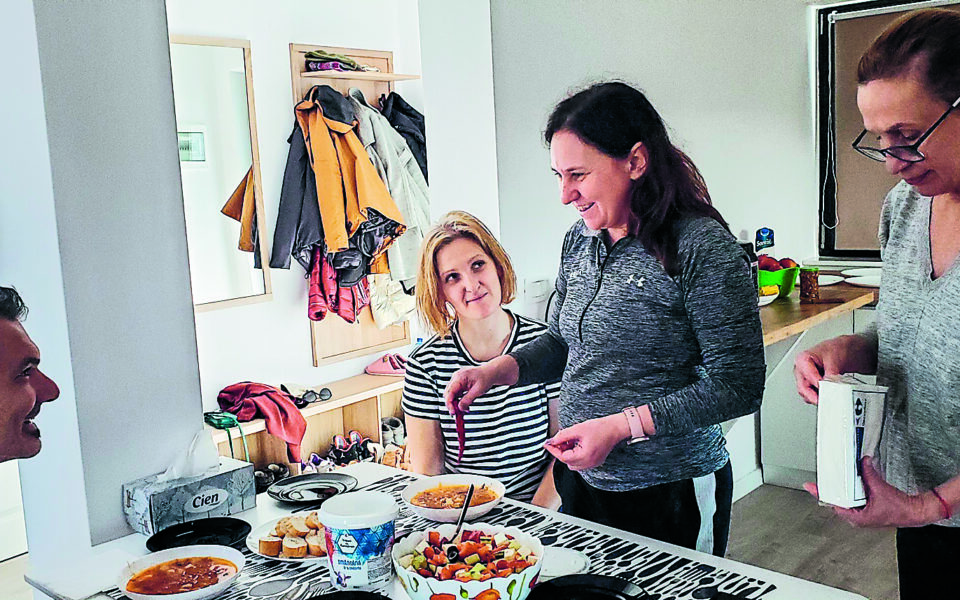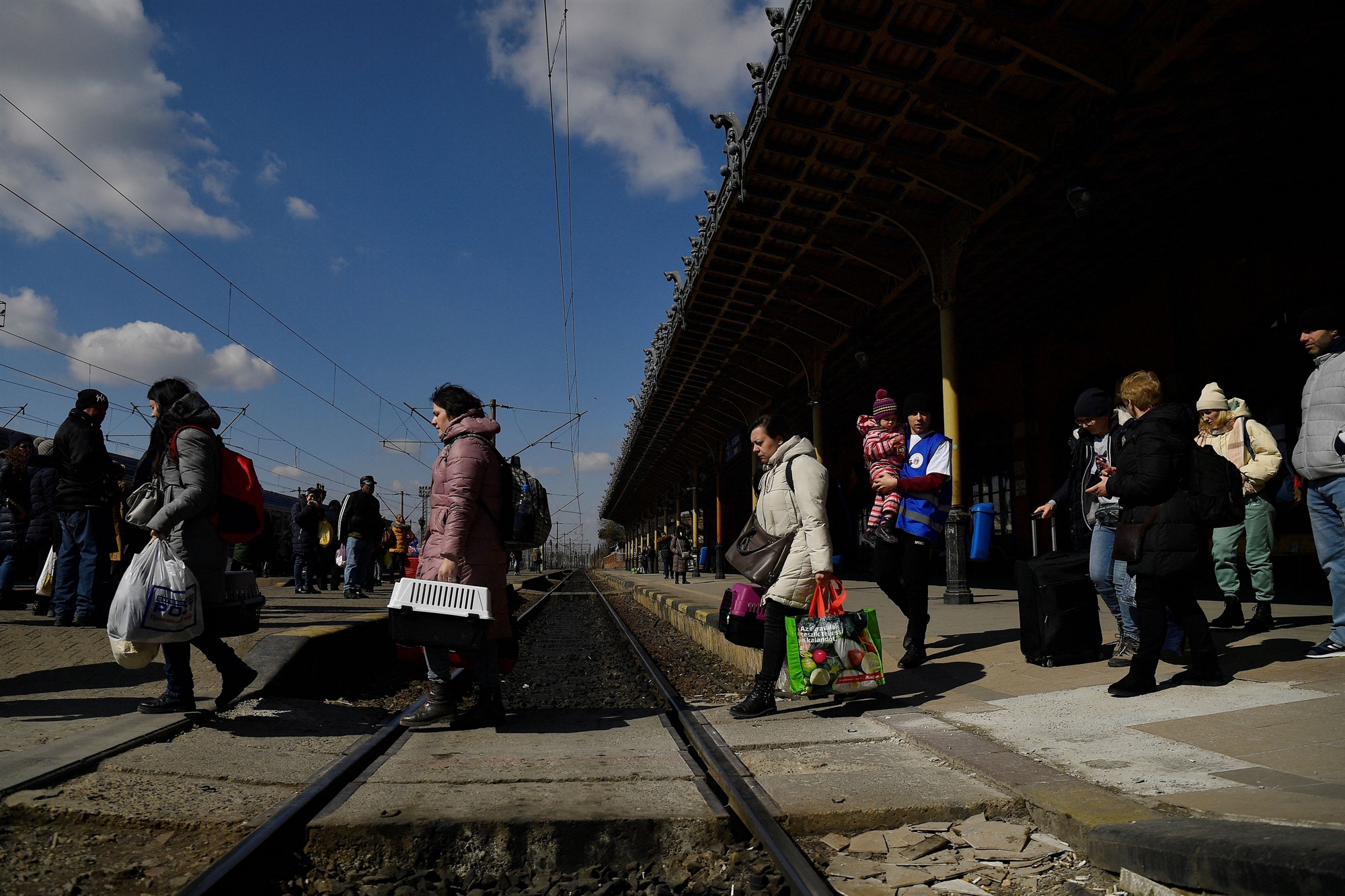A Greek helping fleeing Ukrainians resettle


A Greek IT expert left Pittsburgh in the United States for Siret, a town on Romania’s border with Ukraine, in early March. He is still there on a mission that he never imagined himself involved in: helping the families of Ukrainian colleagues flee the war.
Alexios Kotsilinis works in a big IT consultancy firm called ArganoArbela (formerly ArbelaTech), which has staff located all over the world, working remotely, including 20 Ukrainians. The firm felt duty-bound to help their families get safely to the border, to find homes where they could resettle, to make sure that they had what they needed and, more importantly, to let them know that they weren’t alone. Kotsilinis traveled to Romania to coordinate the effort.
“So far, together with Julia Kiwa, a Ukrainian colleague who lives in Poland, we have managed to get seven families, a total of 22 people, out safely,” Kotsilinis told Kathimerini. “As you know, only women and children can leave the country; the men stay behind [with the exception of those who have three children or more]. Most get their families to the border and then go back.”
‘I met women who did not know how to drive, but who got behind the wheel of a car to save their children from the bombs’
The men, he adds, are involved in the resistance against the Russian invasion in one way or another, digging trenches, helping the militia or in any other way they can. “No one is idle,” he says, adding that even those who have left the country, either get back to work – online – immediately so they can make money to send to the Ukrainian Army, or they join humanitarian organizations at the borders to help their compatriots. Some also join the so-called IT army, a global community of hackers carrying out cyberattacks on Russia. Just a few weeks ago they led a normal life as project managers, programmers and software testers. That life is no longer. Old professional and company rivalries are also gone.
“We are five or six competitors in this field [corporate resource management software] with staff in Ukraine. Before the war, all these companies had fierce rivalries and there was also a lot of competition over personnel as there are few people in this field and they’re hard to come by. Today, we are all united behind the same purpose: to get all of our colleagues out of Ukraine safely and to raise funds to support their families,” says Kotsilinis. “Even if I get all 20 from my company out, I’ll stay for the rest,” he adds, referring to the 700 or so Ukrainians working in the sector.
Several companies in the field have already set up an online platform to gather funds (dynamicsukraine.org) and through which CEOs call on their staff and the public to help the effort. The Ukrainian vice president of SIS, Victor Lesiv, sums the situation up when he says: “In just a couple of weeks, our Ukrainian employees have gained new skills apart from their ability with software applications and modern technologies, such as surviving air raids, hiding when they’re being bombed, evading danger, sleeping underground and doing all sorts of other things no one should have to do in the modern world.”
Kotsilinis arrived in Romania on March 8, when the bulk of displaced Ukrainians had already crossed the border. The outflows are smaller today, but their process of receiving them is very well organized, as services and organizations from all over the world are there to give them what they need, to offer medical treatment if necessary, and to look after their children.
“The stories we hear about how they got to the border defy the imagination. Most spent as many as five days sleeping in their cars – entire families squashed into a vehicle, moms, dads, kids, cats and dogs. Others searched for hotels and ended up sleeping in the hallways. And all of this happened knowing that they would have to say goodbye at the border, perhaps forever. I met women who did not know how to drive, but who got behind the wheel of a car to save their children from the bombs. The women crossing the border have suffered incredible stress, incredible mental trauma and most, of course, just want to go back to find their husbands,” he tells Kathimerini.
The biggest challenge, says Kotsilinis, is finding housing as most free apartments have been occupied. He has managed so far by using accounts on Airbnb and other such platforms. “I literally did nothing, but for them it is important that they can be somewhere where they feel safe and where they can work online,” he says.
He plans to spend at least another month in Siret. “I feel like they’re attacking us. We Greeks understand what it means to be invaded and to have to defend your family, your home and your country. It’s in our history. It is harder for the Americans to imagine; they don’t understand why the Ukrainians want to stay and fight. We do understand,” he says.
 Refugees walk across the tracks to board a train to Bucharest at the Suceava station after fleeing Ukraine due to the Russian invasion via the Siret crossing, on March 17. [CLODAGH KILCOYNE/REUTERS]
Refugees walk across the tracks to board a train to Bucharest at the Suceava station after fleeing Ukraine due to the Russian invasion via the Siret crossing, on March 17. [CLODAGH KILCOYNE/REUTERS]
Source: ekathimerini.com




